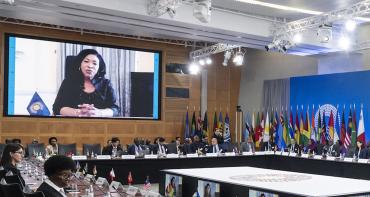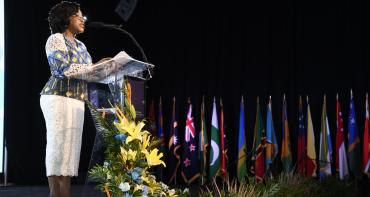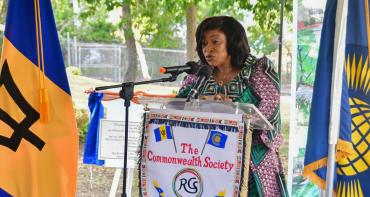Civil society organisations and human rights defenders are struggling to carry out their vital work amid strict measures imposed to curb Covid-19.

Civil society organisations and human rights defenders are struggling to carry out their vital work amid strict measures imposed to curb Covid-19.
Governments around the world, including in the Commonwealth, have taken extraordinary steps during the pandemic such as lockdowns and social distancing.
Organisations supporting poor, marginalised and vulnerable communities say Covid restrictions, while vital, have severely curtailed civil liberties and rights.
These non-governmental bodies also claim some measures have included ways of stopping them performing their core functions.
The Carnegie Endowment for International Peace reports many civil society organizations have been forced to put activities on hold, while some leaders are “taking advantage of the crisis to tighten their political grip by weakening checks and balances, imposing censorship, and expanding state surveillance—all at a time when civil society groups are less able to fight back.”
A virtual discussion hosted by the Commonwealth Secretariat’s Human Rights Unit last week highlighted the shrinking space for civil society.

Commonwealth Secretary-General Patricia Scotland said: “In parts of the world and some Commonwealth countries, the question as to whether the space for civil society organisations is now being improperly restricted is being raised.
“The restrictions made necessary to prevent the spread of Covid-19 should never be used improperly nor as a pretext to limit the important work that civil society organisations undertake to support at-risk communities and hold our governments to account.”
She added: “Now, more than ever, we as a whole family must uphold our Commonwealth commitment to create and robustly defend space in which civil society organisations and human rights defenders are free to operate and engage.”
Karen McKenzie, head of Human Rights at the Commonwealth Secretariat, said: “The Commonwealth Charter has specifically recognised ‘the important role that civil society plays in our communities and countries as partners in promoting and supporting Commonwealth values and principles, including the freedom of association and peaceful assembly, and in achieving development goals.’
“Member states have therefore committed themselves to promoting and protecting the rights and work of civil society organisations and human rights defenders.”
Mary Lawlor, the UN Special Rapporteur on the situation of human rights defenders, spoke of human rights defenders facing heightened threats, violence and unjust punishments during the pandemic.
She told the discussion: “The virus has changed the world suddenly and forever. We’ve seen authoritarian regimes all over the world taking advantage of the current crisis to grab more power and target those defending human rights
“We could lose in the coming months valuable ground it took us long decades to win in establishing human rights protections.”
Mandeep Tiwana, chief programmes officer at the CIVICUS global alliance of civil society organisations, said positive engagement between governments and organisations was key.
He said: “Commonwealth governments should involve civil society organisations in policy making in relation to Covid-19.
“Those countries and those leaders that appear to have done better are ones that have been empathetic in their responses, inclusive, transparent and have shared the difficult decisions.”



